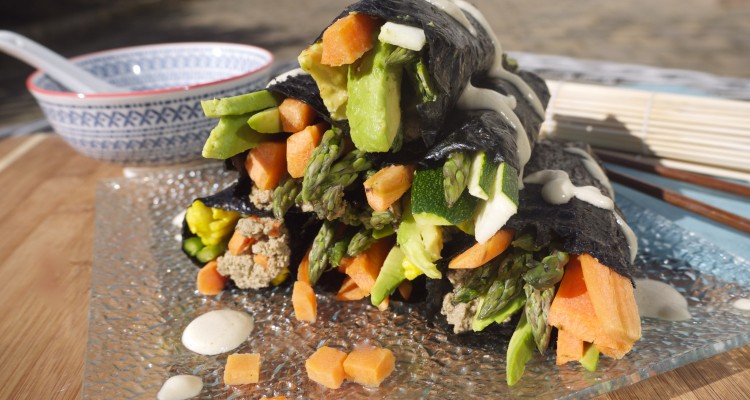The typical Western diet doesn’t incorporate an awful lot of sea vegetables, but they’re a great type of food to support good health and they’re pretty easy to integrate into your normal diet. They offer one of the widest ranges of minerals of any type of food and many of those also found in your blood.
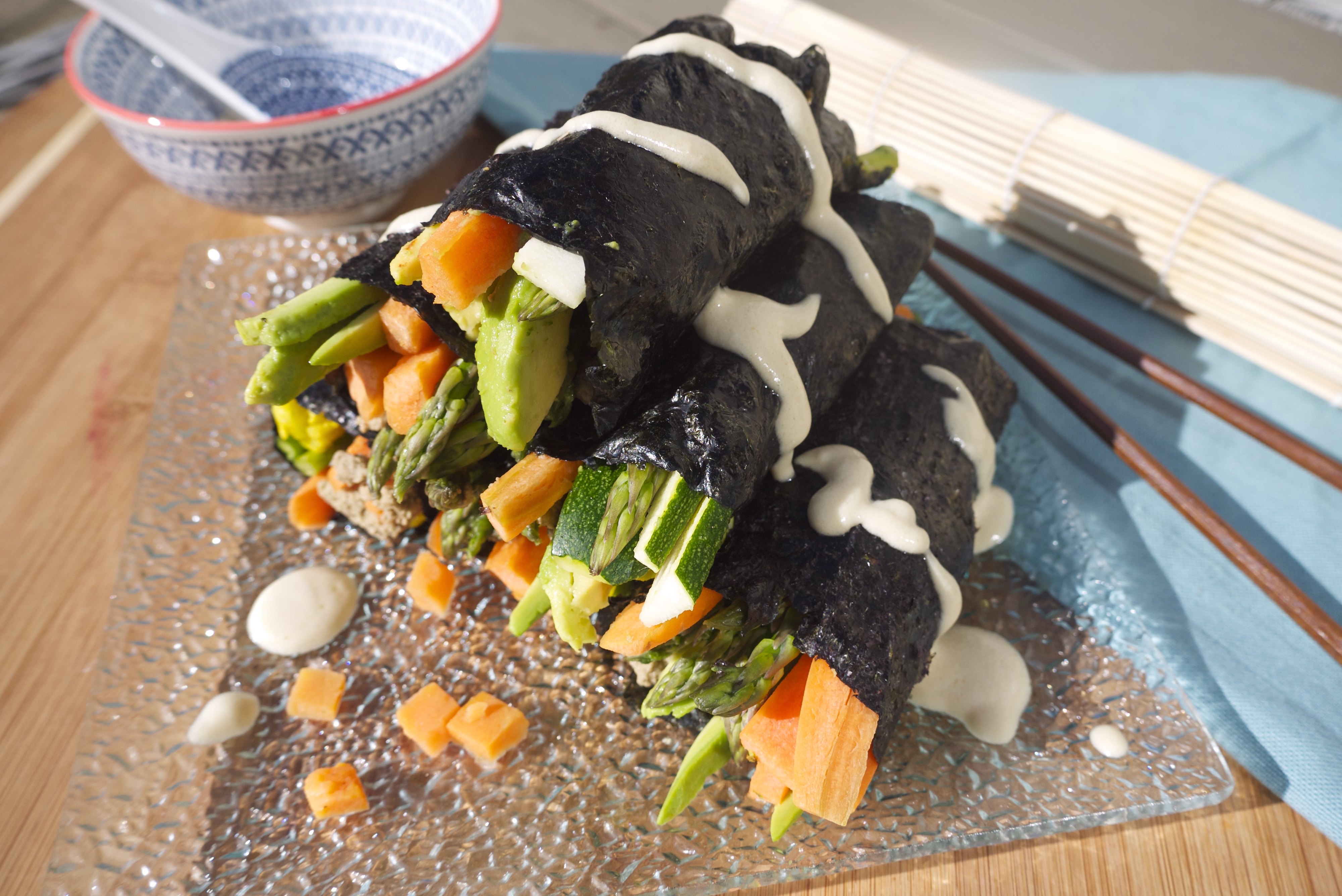 Sea vegetables are a superb source of bioavailable iron, with one tablespoon of dried sea veggies containing almost a third of the recommended daily allowance of 10mg for adults. Vitamin C is needed for the proper absorption of iron, and sea vegetables boast an impressive level of vitamin C, as well as vitamins A, B2, B3, B6 and E. All of these are needed to maintain healthy skin, support energy levels, boost the immune system and even encourage a positive mindset.
Sea vegetables are a superb source of bioavailable iron, with one tablespoon of dried sea veggies containing almost a third of the recommended daily allowance of 10mg for adults. Vitamin C is needed for the proper absorption of iron, and sea vegetables boast an impressive level of vitamin C, as well as vitamins A, B2, B3, B6 and E. All of these are needed to maintain healthy skin, support energy levels, boost the immune system and even encourage a positive mindset.
They’re also rich in calcium, zinc, copper, potassium, manganese and magnesium. In fact, the wide range of minerals available in sea vegetables is generally not found in other types of vegetables.
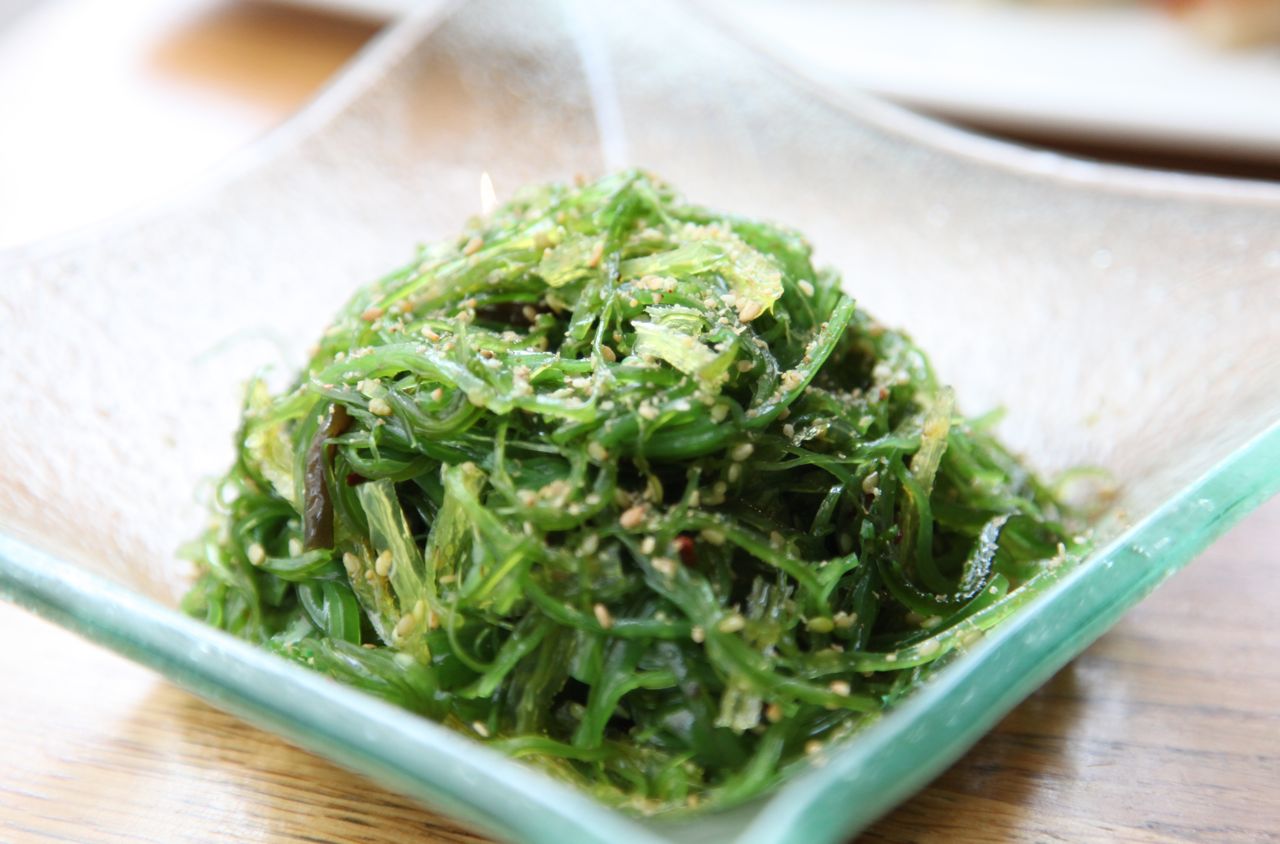 Though recognised for their impressive mineral content, sea vegetables can also provide valuable antioxidants to your diet, to help reduce the oxidative stress often associated with ill health.
Though recognised for their impressive mineral content, sea vegetables can also provide valuable antioxidants to your diet, to help reduce the oxidative stress often associated with ill health.
They contain both carotenoids and flavonoids, plus other types of phytonutrient antioxidants to help protect your cells from everyday free radical damage through pollution, smoking, less healthy food choices, excess alcohol and more.
Added to the antioxidant vitamins C and E and the antioxidant minerals manganese and zinc found in sea veggies, they may really help to boost a diet that is otherwise lacking in antioxidant-rich foods.
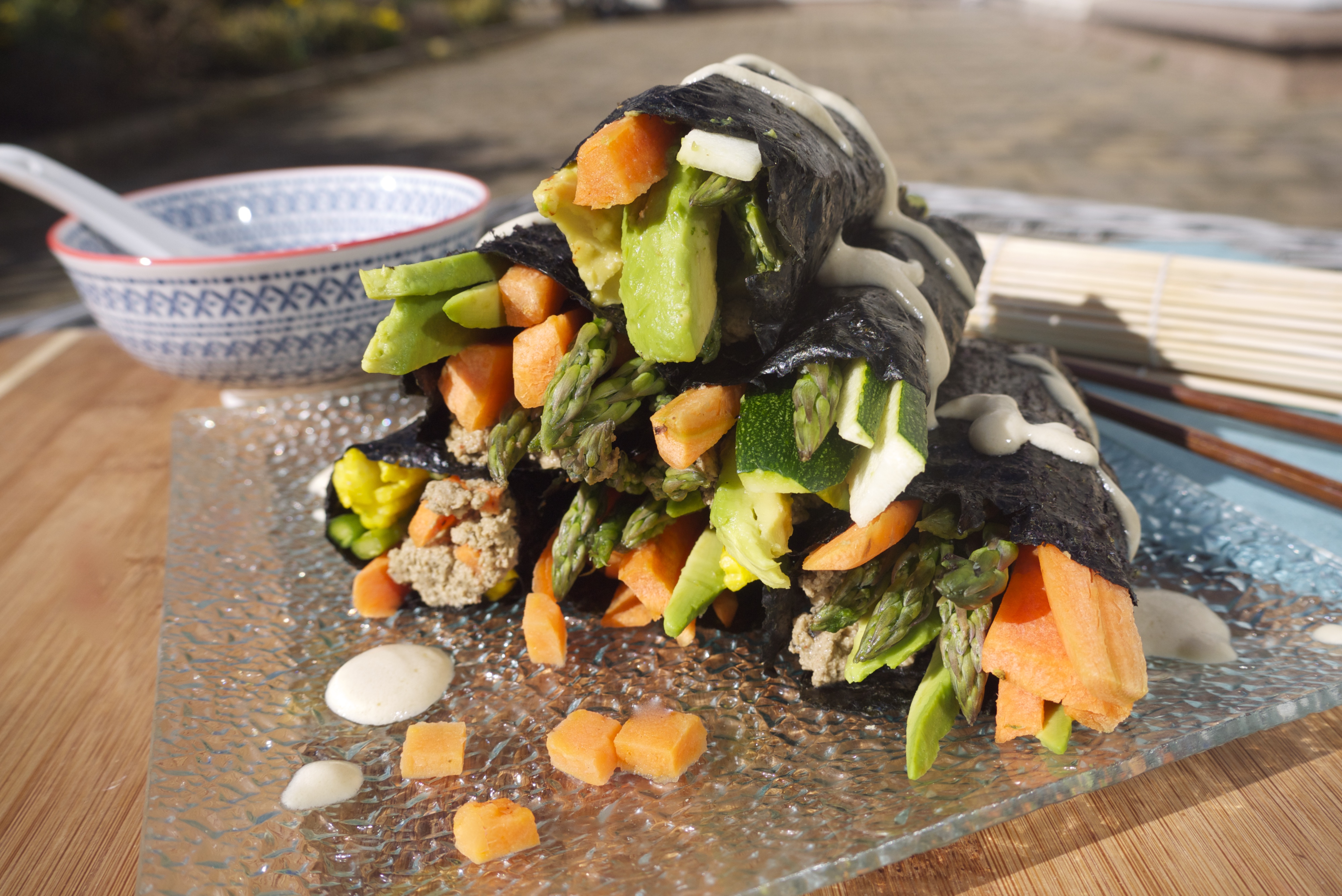 However, one of the main reasons that I eat sea vegetables like nori, kelp, kombu, dulse and wakame, is for their iodine content. This is an essential mineral for your thyroid health. The thyroid is a butterfly-shaped organ located in the base of your neck and is responsible for releasing the hormones that control your entire metabolism, which is the way in which your body actually uses energy. Thyroid hormones regulate vital functions in the body, including heart rate, breathing, nervous system, body weight, muscle strength, body temperature and so much more.
However, one of the main reasons that I eat sea vegetables like nori, kelp, kombu, dulse and wakame, is for their iodine content. This is an essential mineral for your thyroid health. The thyroid is a butterfly-shaped organ located in the base of your neck and is responsible for releasing the hormones that control your entire metabolism, which is the way in which your body actually uses energy. Thyroid hormones regulate vital functions in the body, including heart rate, breathing, nervous system, body weight, muscle strength, body temperature and so much more.
The thyroid hormone thyroxine, is formed from iodine and the amino acid tyrosine. Without plentiful supplies of thyroxine, your thyroid may begin to dysfunction, which can make you more prone to weight gain, dry skin, fatigue, irritability and feeling constantly cold.
While regular table salt generally has added iodine, many people prefer to avoid refined salt and salty foods, and instead get all the iodine they need for a healthy metabolism from sea veggies, which also add a subtle saltiness to foods.
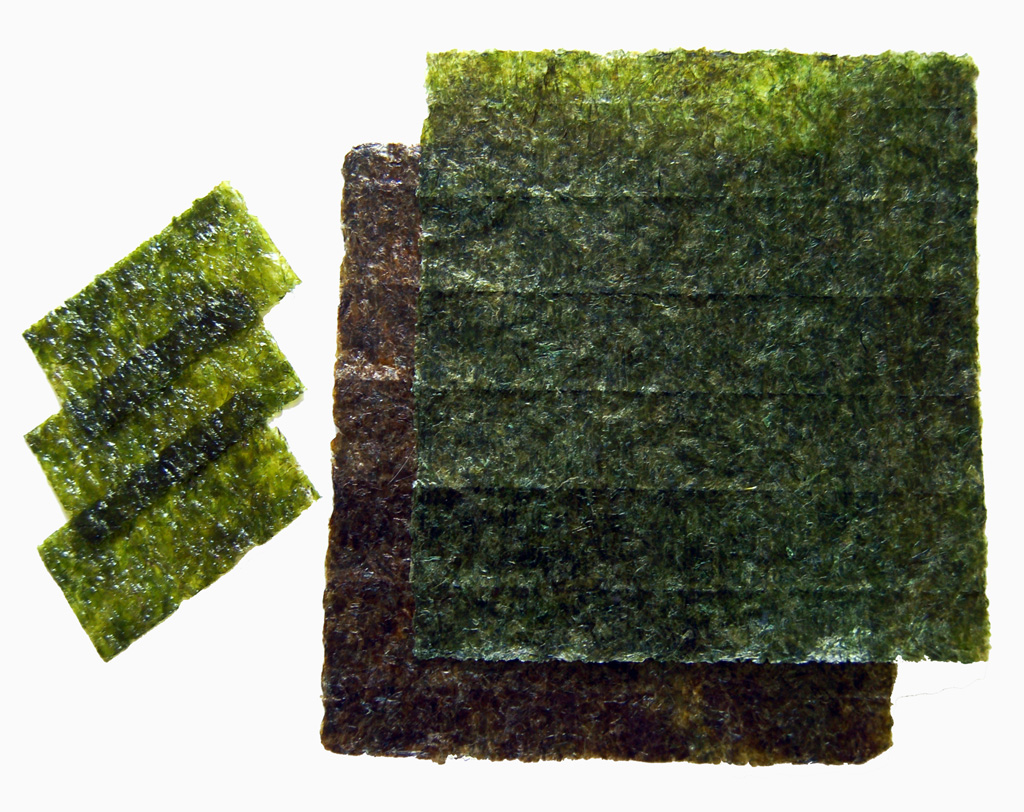
Packets of nori can be bought inexpensively, with a packet of 10 costing €2 from Tesco. Traditionally used to make sushi, the sheets can be eaten as they are from the packet, and I often wrap piles of hummus, avocado, crunchy vegetables and sprouts into them for a quick, nutritious meal.
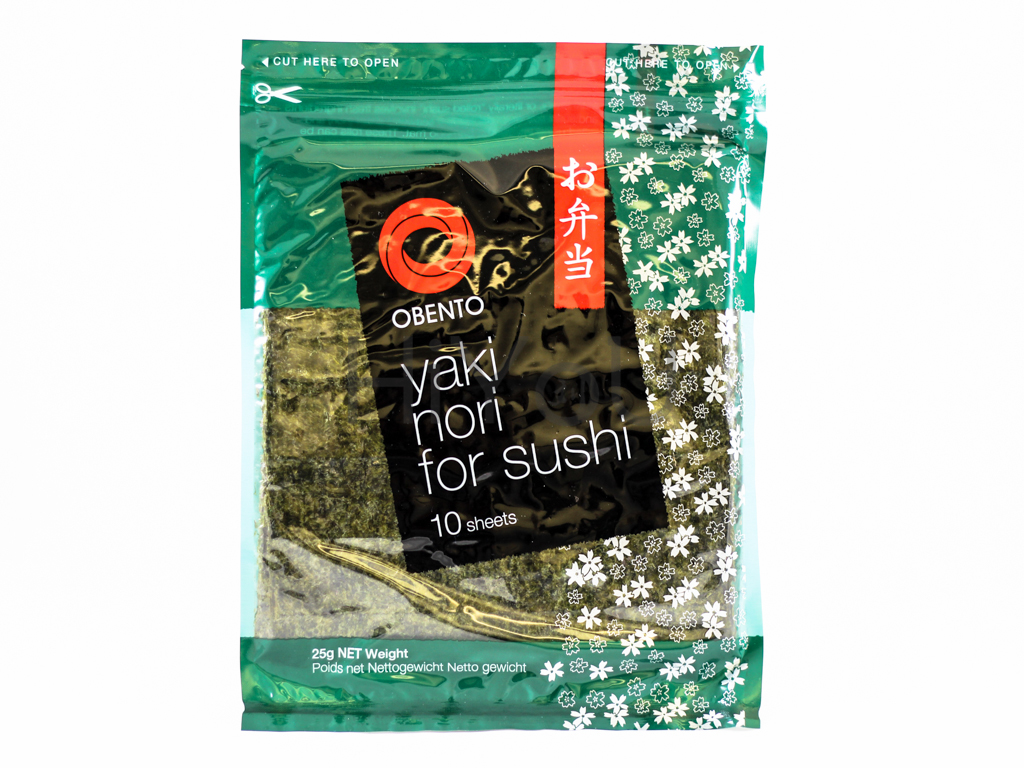
Another great way to eat more is to keep a container of kelp flakes on the dinner table and use them in the place of salt. Salads, soups and miso soup also taste great with them. But other types of sea veggies will come dried, and they’ll need to be soaked to soften for a short time and then rinsed. It’s best to check the specific instructions on the packet.
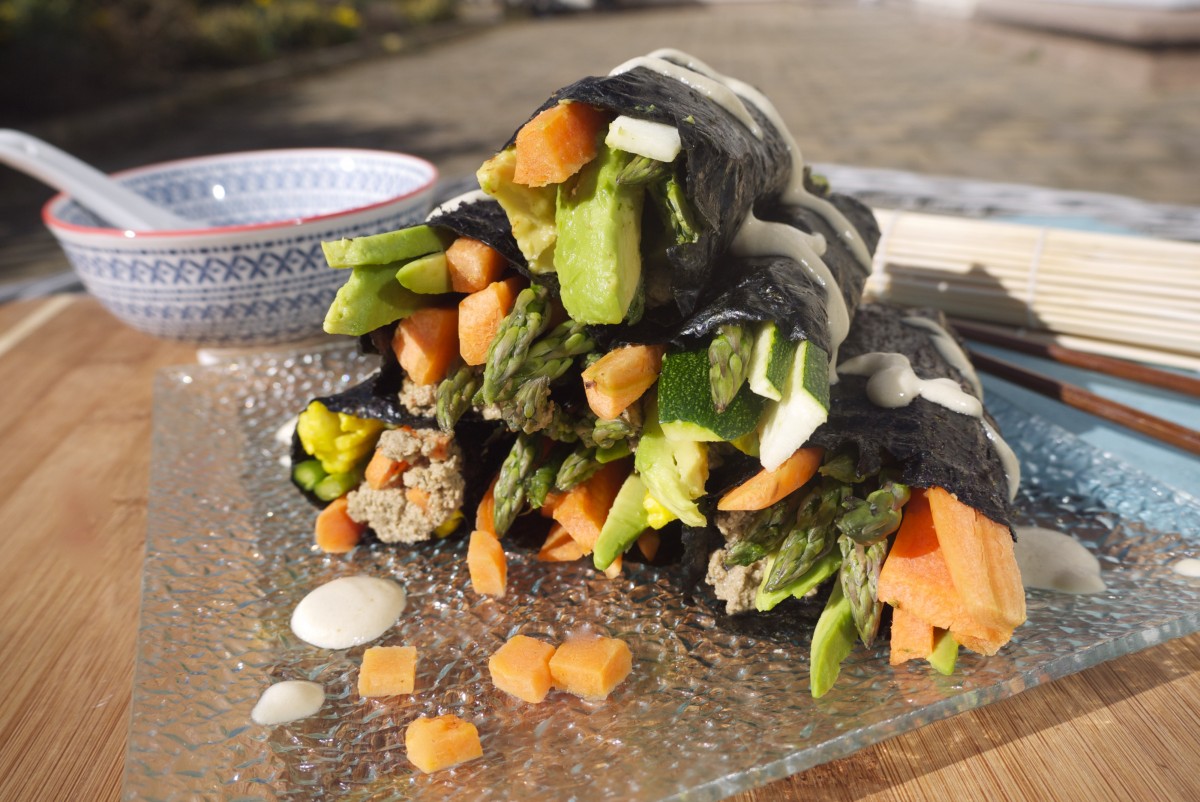

- 1 packet of 10 nori sheets
- 1 ripe avocado, peeled, pitted and sliced
- 5 asparagus spears
- 3 medium carrots, peeled and sliced into thin sticks
- half a cucumber, rinsed and cut into thin sticks
- 1 red/yellow/green bell pepper, cored and sliced into strips
- handful of fresh coriander or parsley, chopped
- 4-5 tbsp hummus (optional)
- 1 tbsp tahini
- 2 tbsp warm water
- Sea salt and black pepper, to taste
- Lay out the nori sheets on a clean dry surface and spread a layer of hummus along the edge closest to you, leaving about half an inch from the very edge.
- Arrange the vegetables lengthways down the centre and season with a little salt and pepper, to taste.
- Gently roll up the wraps, beginning from the edge closest to you. Use a drop of water on your index finger to help seal the edges together.
- To make the tahini sauce, in a small bowl mix the tahini with the warm water until smooth. Season with a pinch of sea salt and pepper and drizzle on top of the nori wraps.
- The wraps are best eaten on the day they're made, but any leftovers can be stored in an airtight container in the fridge for up to 2 days.

